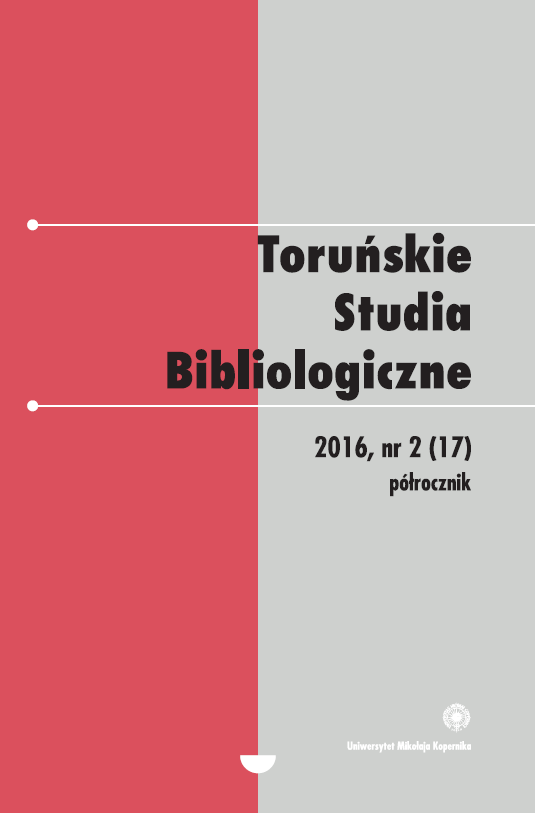QR kod jako uzupełnienie tradycyjnej monografii. Korzyści i konsekwencje
DOI:
https://doi.org/10.12775/TSB.2016.024Słowa kluczowe
kody QR, nowe metody publikacji tekstów naukowych, Obywatelskość 2.0Abstrakt
W tekście opisano możliwość wykorzystania w tradycyjnych monografiach naukowych kodów QR. Dzięki zastosowaniu tego rodzaju narzędzi autorzy uzyskują okazję do upowszechniania wyników swojej pracy w sposób pozatekstowy. Taki rodzaj publikowania jest atrakcyjny zarówno dla autorów – zdobywają oni wizualne możliwości prezentowania, jak i dla czytelników, dla których taki przekaz może być bardziej atrakcyjny. Wykorzystanie nowoczesnych technologii w procesie publikowania monografii naukowych może jednak budzić obawy. Ewentualne konsekwencje wynikające z banalizacji i tabloidyzacji sfery naukowej są groźne dla autorytetu środowiska naukowego. W tekście został opisany konkretny przykład monografii, której autorzy zdecydowali się na wykorzystanie kodów QR jako uzupełnienia tradycyjnej monografii naukowej. Kody zostały dołączone do publikacji, w której znalazły się wyniki badań jakościowych przeprowadzonych przez antropologów kulturowych na Litwie.Bibliografia
Bożek Agata, Kamińska-Mazur Lena, Książka hybrydowa – kod QR sposobem na koegzystencję książki drukowanej z e-bookiem. „Biuletyn EBIB” [online] 2012, nr 7 [dostęp 31 lipca 2016]. Dostępny w World Wide Web: http://open.ebib.pl/ojs/index.php/ebib/article/view/165.
Frączyk Maciej, Zeznania niekrytego krytyka, Warszawa 2012.
Głowacki Andrzej, Archetyptura czasu, Rzeszów 2013.
History of QR Code [online] [dostęp 31 lipca 2016]. Dostępny w World Wide Web: http://www.qrcode.com/en/history.
Karnowski Michał, Mistewicz Eryk, Anatomia władzy, Warszawa 2010.
Obywatelskość 2.0. Zaangażowane narracje o obywatelskości młodych mieszkańców Litwy i Polski, pod red. Marceliny Jakimowicz, Mateusza Sikory, Bydgoszcz 2016.
What is QR Code? [online] [dostęp 31 lipca 2016]. Dostępny w World Wide Web: http://www.qrcode.com/en/index.html.
Zygierewicz Anna, E-book. Produkt, technologia, rynek, „Analizy BAS” 2013, nr 9, s. 1–12.
Pobrania
Opublikowane
Jak cytować
Numer
Dział
Statystyki
Liczba wyświetleń i pobrań: 1493
Liczba cytowań: 0



